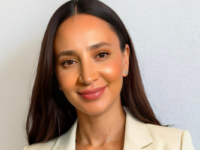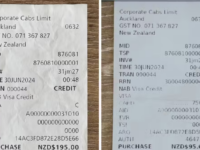This week we chat to former test cricketer Peter George, founder – alongside wife Suzy – of Brisbane-based start-up Sportech Industries. Peter and Suzy have developed MyCallTM, a sensor technology that detects and alerts umpires when a no-ball is bowled, with the aim of eliminating the scourge of endless delays while on-field and TV umpires agonise over whether or not a “wicket” was a fair delivery.
ISB: What was the inspiration behind the idea for MyCallTM?
PG: I was sitting at the Adelaide Oval with a mate from the UK watching Australia take on England in the 2013 Ashes series. Workhorse fast-medium bowler Ryan “Rhino” Harris took a big wicket to win the game for the Aussies and everyone jumped to their feet to celebrate. A few moments later, the umpire is waving for a third-umpire review and we all sat around for a few minutes while they checked the video for a no-ball. It turned out that Rhino’s foot landed well behind the line and the wicket was awarded, so we could all carry on the celebration. But the entire thing just seemed ridiculous and got me thinking, “there has to be a better way”.
I then spent the latter years of my professional cricket career speaking to people, gaining support and thinking how it could all work technically. It’s quite a difficult environment for a technology – there are batsmen, bowlers, umpires and even birds out on the pitch – and the accuracy and reliability threshold is very high.
ISB: What was the biggest challenge you faced in making the transition from professional sportsman to entrepreneur?
PG: I spent so many years in the high-performance cricket environment. I knew that I could perform in that environment: I knew how to bowl a ball, how to physically prepare, how to mentally prepare. Then all of a sudden, I was completely thrown into the deep-end at the end of my playing career and have had to learn new skills every day. I’d be lying if I said it was easy. I played professional cricket for 14 years, started straight out of school, so I never really knew anything else.
ISB: And how did you go about acquiring the hi-tech knowhow required to develop the system you have?
PG: Fortunately, I studied Engineering after I graduated high school. This gave me a really foundational level of technical knowledge. I built my own prototype no-ball detector (yes, I did a lot of googling!) and then engaged contractors to work with me to make the vision a reality. We still have some way to go in the final development but we are making huge progress; the system is increasingly accurate and reliable and we are in planning for the development pipeline to see MyCallTM ready for commercialisation.
ISB: How have you and Suzy “divvied up” all the responsibilities that come with launching and running a start-up?
PG: It’s a work in progress – given Suzy is also my wife and we have two young children, the conversation never stops. If one person is under the pump with work, then the other picks up more of the home-life stuff. Sometimes we are both under the pump with work, and that gets hard. It’s been a big transition to work together and be married, but we are finding our rhythms now with work and family life.
We are also lucky enough to be a very complementary team in terms of our skills. Suzy is highly strategic and her execution and management skills are incredible. I’ve come to appreciate and lean on her business experience as, while I was playing cricket for 14 years, she was building her own career. I’ve also come to understand my skills are blend of being visionary, on the one hand, and anything that requires copious amounts of detail. Learning to maximise our strengths (and of course minimise the weaknesses) as a team has taken time.
ISB: What is your vision for the venture in the next couple of years?
PG: I expect to see MyCallTM used in televised cricket games around the world. This will provide the launching pad for it to also be adopted at grassroot game level as well. This will be the start of making our vision of “becoming the most relied-upon technology in world cricket” a reality.
ISB: Finally, what is the number one lesson you’ve learnt on this journey you’d share with others looking to make the shift from an established career to starting their own business?
PG: Talk to as many people as you can, be open to feedback but also be prepared to accept that sometimes only you can see a vision for something that other people can’t see. You need to be able to tell the difference between a doubter and someone telling you it actually won’t work and that you should listen. In my experience, most people think something can’t be done until it’s been done – so go out there and do the thing and show the doubters it’s possible! That the motivation that gets me out of bed in the morning.
















